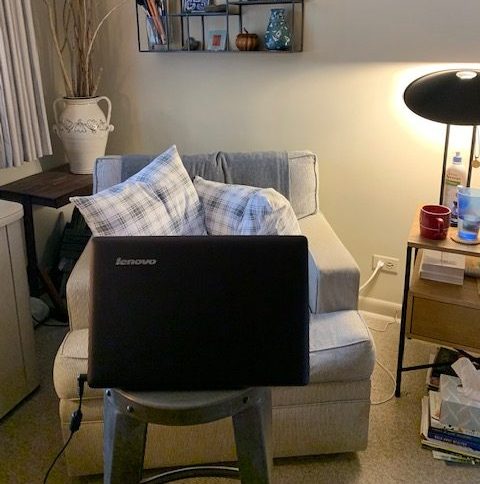There are reasons for using labels. They can be very useful, in an elemental way. To label something is to identify it and categorize it, which makes it easier to talk about, and therefore easier to share. Labels can promote intimacy and community, and when more and more people agree on the usefulness of a label then it gains more power. For instance, I am a person (and not— to my great regret— a golden retriever puppy), but there are a lot of labels I use to guide people’s attention to the parts of me that I want to represent, discuss, and work on.
Category: Therapy
The Intersection of Kink, Healing & Disability
Posted onOur May KPACT presenter, carrie sarah kaufman, shared with us a poem she wrote on the intersection of kink, healing and disability. Ihave been so conditioned to give care if i want to receive it. Tobetray myself to meet my needs.Disabled,i have heardIam a burden in every relationship. WheelchairMommy with chronic pain Iknow the power in my vulnerabilityIknow the wisdom […]
Resting into this Time: Self-care for Therapists
Posted onIt has been almost 6 months since the shelter in place orders in Illinois were announced. Most therapists I know went remote in March. Therapy offices around the city sit unused. I don’t know many therapists who are planning to return to their face-to-face practices anytime soon. The spring challenged all of us to adjust […]
Working from Home
Posted onHope you are all well and staying as safe as we each can be in these challenging days. As I have been working from home, I am aware of needing to adjust and tweak my ad hoc home office set up day by day. So, I wanted to mention a few things you might consider […]
Clinical Practice Guidelines for Working with People with Kink Interests Published!
Posted onRichard Sprott discusses the Kink Practice Guidelines Project and shares his best clinical practices. by Richard Sprott, Ph.D.For many years, therapists and counselors who worked closely with the BDSM/kink communities—on the front lines of helping people who are kink-identified or practicing BDSM—have often served in relative isolation. They have honed their clinical judgments and approaches, figuring […]
Therapeutic Issues in Kink & Consensual Non-Monogamy with Dr. Eli Sheff
Posted onEli Sheff, PhD is a sociologist and researcher who has compiled the only longitudinal study on polyamorous relationships. For over 20 years, Dr. Sheff has followed, interviewed and published her findings about polyamorous families to gain and share perspective about what polyamory looks like, and how it affects people. On July 6th, Dr. Sheff joined […]
Making Mindfulness Meditation Exercises Accessible for Transgender and Gender Nonconforming Clients
Posted onTo be mindful is to be in a state of open, nonjudgmental awareness of whatever is happening in the present moment. With its roots in Buddhism and popularized in the Western world by John Kabat-Zinn and others, mindfulness has been used to support clients in a variety of contexts as they work toward improving their mental and physical health.
The Importance of the Therapist’s Attachment Style
Posted onSantiago Delboy, MBA, LCSW, S-PSB, is a colleague and friend of KPACT, who brings insight and thoughtfulness to his work and collaboration. We are pleased to share some of his writing. This post appears in Santiago Delboy’s blog, which can be found here. I believe attachment theory provides a fundamental framework to understand the issues our clients bring to […]
Maximizing Progress Toward Therapy Goals – Getting to the Gold!
Posted onby Fawna Stockwell, PhD, BCBA-D Fawna Stockwell is the Director of Research and Programs at Upswing Advocates, a Chicago nonprofit organization that provides sliding scale coaching, groups, trainings, and research opportunities that focus on the LGBTQIA community. Fawna is also the Associate Director of Research in the Applied Behavior Analysis department at The Chicago School of Professional Psychology’s […]
Gender-Affirming Clinical Skills: Part 2
Posted onby Worner Leland, MS, BCBA, of Upswing Advocates As a clinician, it is important to build competency in transgender care, but it may be difficult to know where to start. In our last blog we presented some gender-affirming clinical skills you can incorporate into your practice. Here are some additional skills to best serve your […]
Gender-Affirming Clinical Skills: Part 1
Posted onby Worner Leland, MS, BCBA, of Upswing Advocates Whether someone thinks a lot about their gender or has never given their gender identity much thought, everyone has a gender identity. Cisgender means: having a gender identity that matches the gender assigned to one at birth (from the Latin prefix “cis” meaning “on this side of”). […]
How Therapists (Often Unintentionally) Stigmatize Polyamorous Clients
Posted onThis is the fourth in a series of articles about the intersections of polyamorous identities and psychotherapy, adapted from Rami Henrich and Cindy Trawinski’s article in Sexual and Relationship Therapy, “Social and therapeutic challenges facing polyamorous clients,” as well as supplemental materials that didn’t make it into the final research paper. In this installment, we […]












